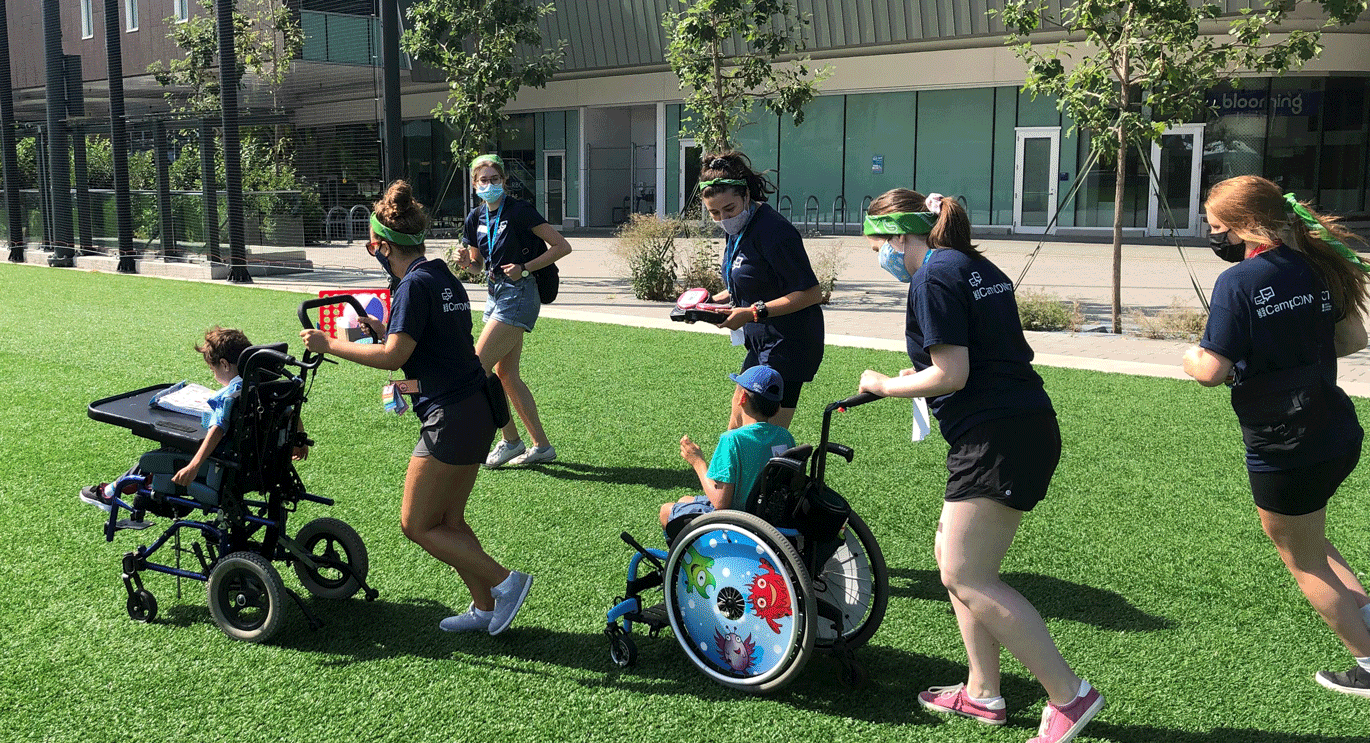
Nine-year-old Jayden has always been a shy child. Communication challenges make it difficult for him to connect with people, but thanks to a new initiative at UBC’s faculty of medicine, his parents have a seen a big change in him.
Jayden uses an Augmentative and Alternative Communication (AAC) device, which is an electronic pad or “talker” that allows him to type words rather than communicate verbally. Speech apraxia, a motor speech challenge, makes it difficult for him to speak. His parents, Joseph Kwan and Joyce Lo, struggled to find the resources and training Jayden needs here in British Columbia to build his communication skills and make the most of his AAC device.
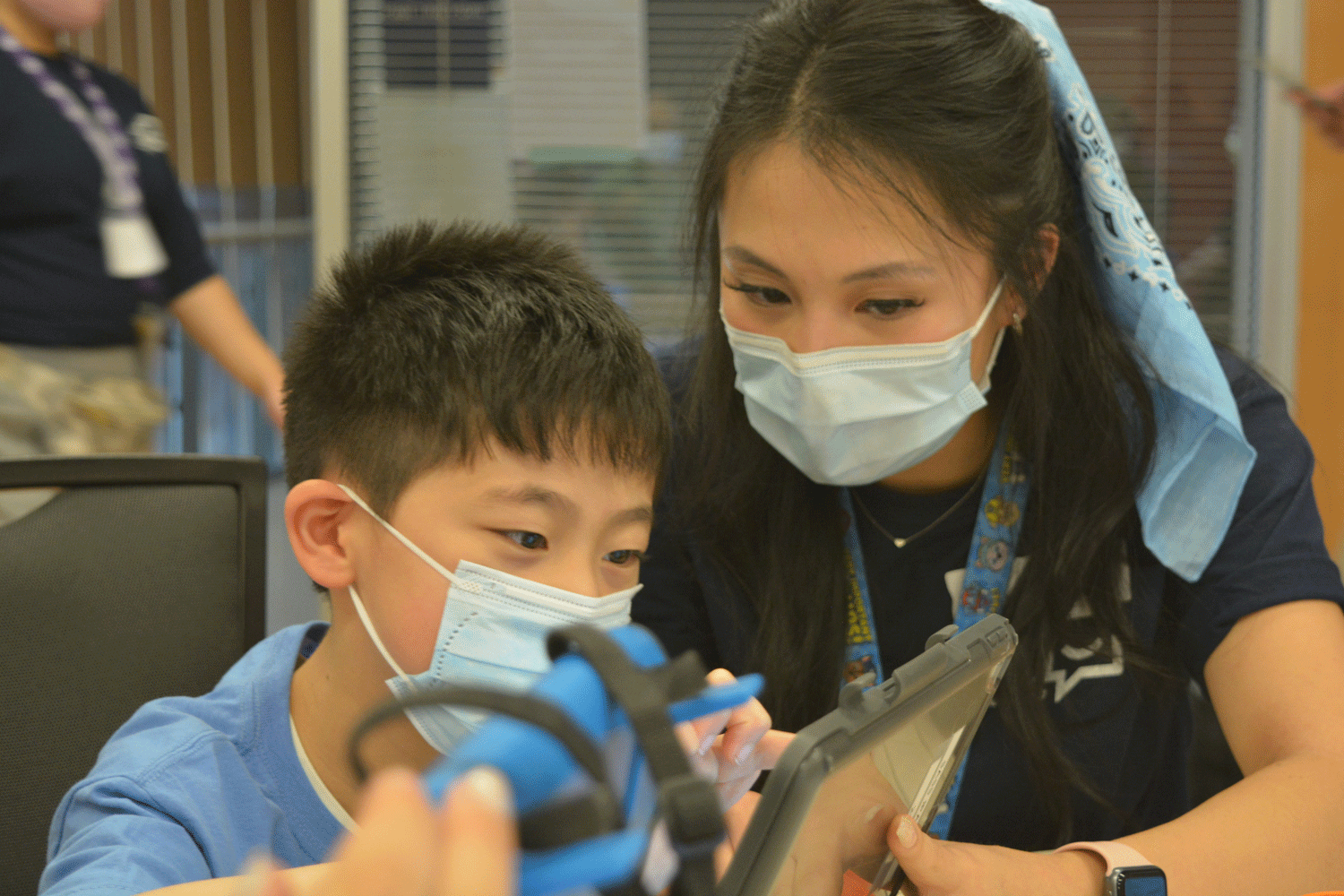
Jayden works with a UBC student on his AAC device.
“We attended a program in the U.S. and it was a transformative experience for our family,” Joyce says. “We wanted to create a similar experience for other families here in B.C.”
This summer, they joined the UBC faculty of medicine’s School of Audiology and Speech Sciences (SASS) to launch Camp CONNECT, a program that brings together people living with developmental and acquired communication challenges and offers UBC students an authentic and in-house clinical training experience.
“The idea was to give students the chance to use their clinical skills in a real-world setting, learn from the people they serve, and offer a place for connection,” says Eavan Sinden, the event faculty lead and a Speech Language Pathology clinical instructor at SASS. “Many of the participants were at particular risk for social isolation even before COVID. So the primary goal was to serve the campers, empathize, and be there for our community.”
Students lead the way
First-year Speech-Language Pathology (SLP) students led Camp CONNECT with support from second-year students and clinical faculty members. The students received training before the camp, then worked as communication facilitators to support the participants.
One group was comprised of children like Jayden, ages six to 12, living with physical or developmental challenges and who use AAC. The other group was adults with aphasia, which refers to an acquired language impairment due to brain injury that can affect the production and/or comprehension of speech and the ability to read or write.
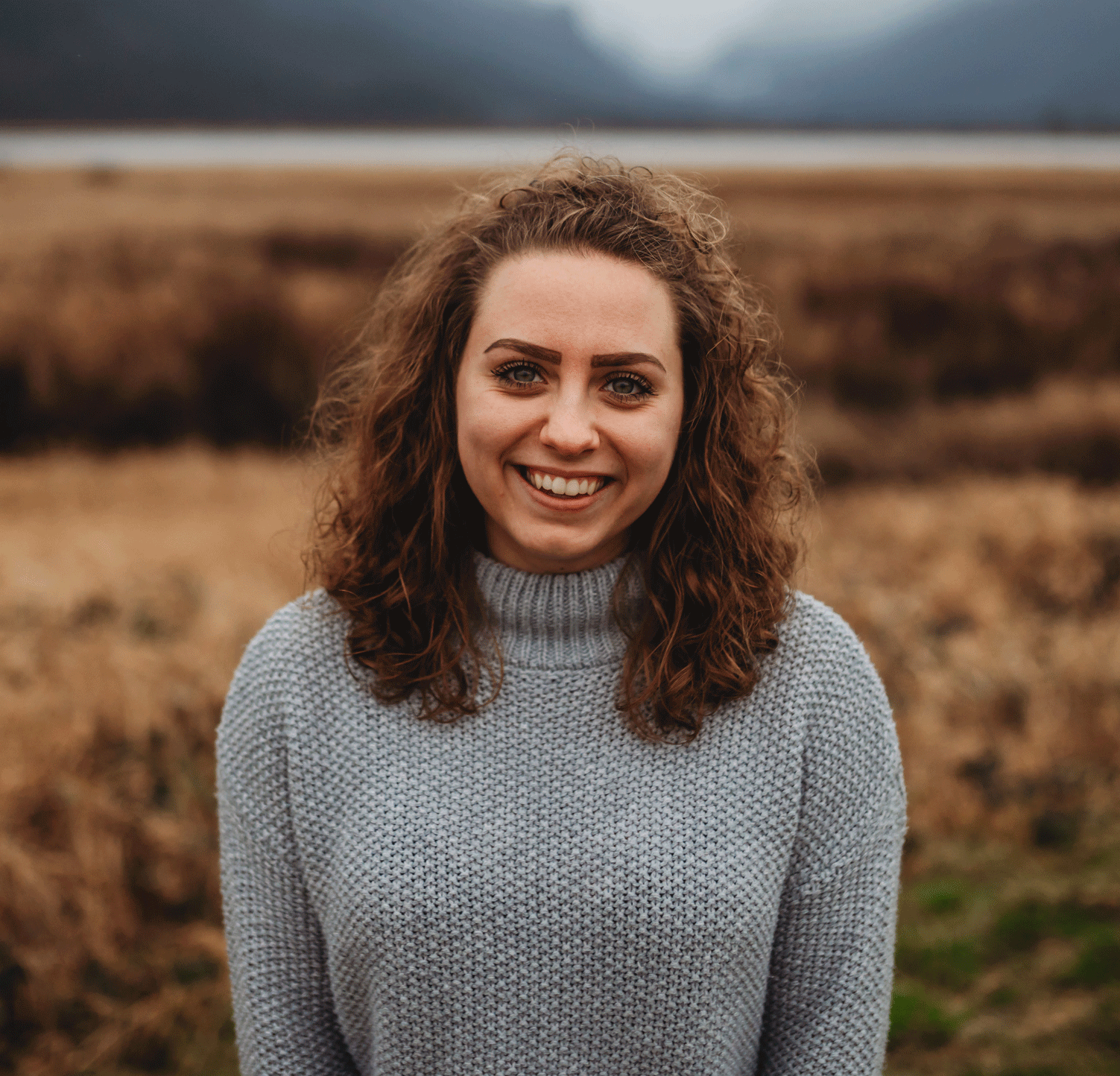
UBC student Carlin Bannister
Carlin Bannister, a first-year SLP student, worked closely with two children at the camp. One game she facilitated allowed them to communicate through devices with pre-programmed words, including greetings.
“They would go back and forth using the device to say ‘Hello’ to each other and I think they were so excited to be able to be heard,” Bannister says. “Seeing they could have impact, and that they could communicate with someone and have them respond, was really powerful.”
Vicky Ripley, also a first-year SLP student, was a facilitator in the camp for adults with aphasia and learned how every person uses different combinations of strategies for communication.
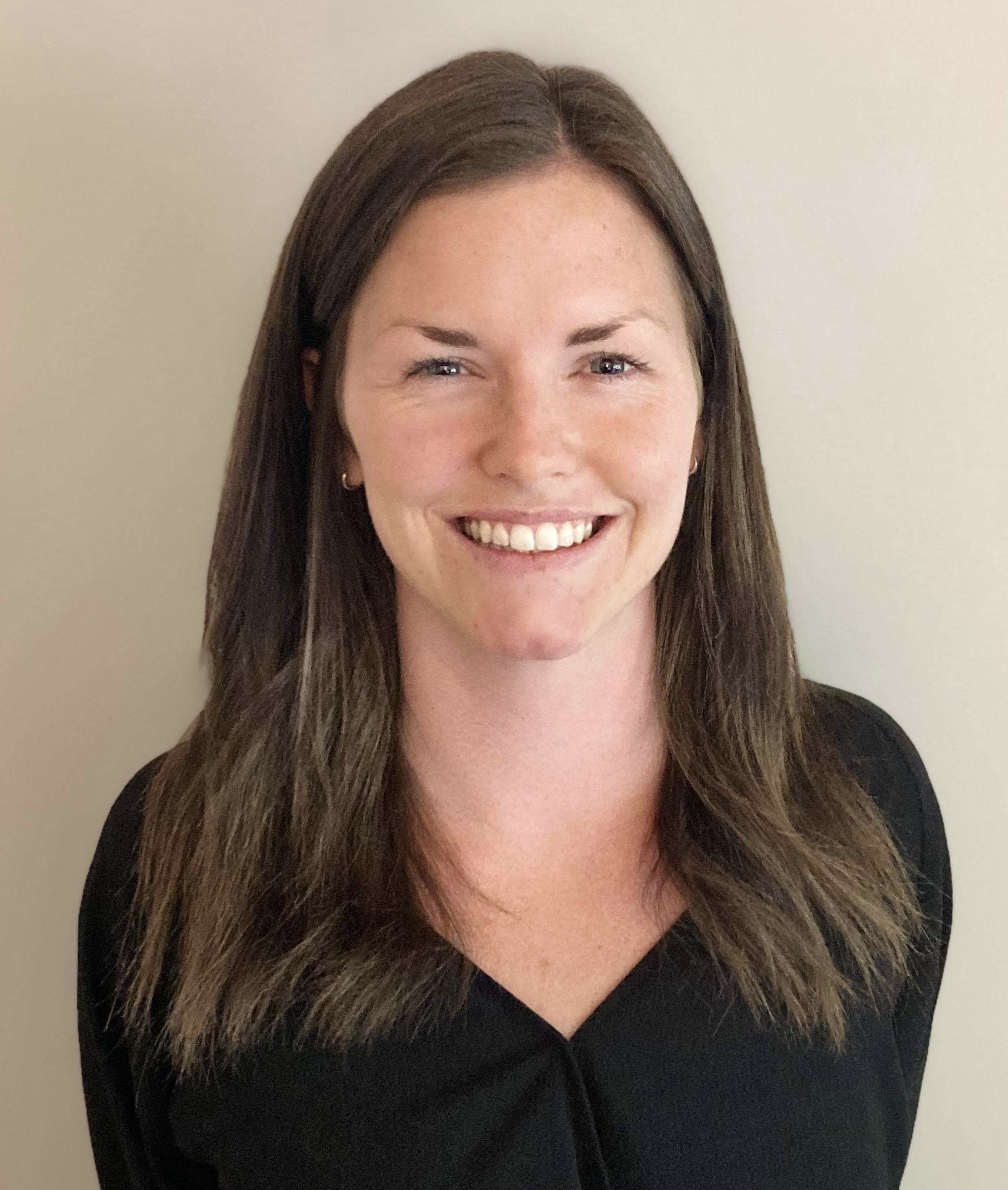
UBC student Vicky Ripley
“It was valuable to connect adults with aphasia so they could learn how others with similar communication challenges live successfully,” she says. “It can be encouraging to see others at different stages of their journey. One adult camper who recently had a stroke told us that hearing the story of someone who went through similar challenges years ago and improved, gave him hope.”
Shifting the power structure
For participants like Jayden, the impact of Camp CONNECT was apparent right away.
“He started typing the names of his camp communication facilitators during breakfast before camp, which showed how much he enjoyed and appreciated the experience,” his mom Joyce says. “We showed the students a photo of their names on his AAC Device and it was a memorable moment for all.”
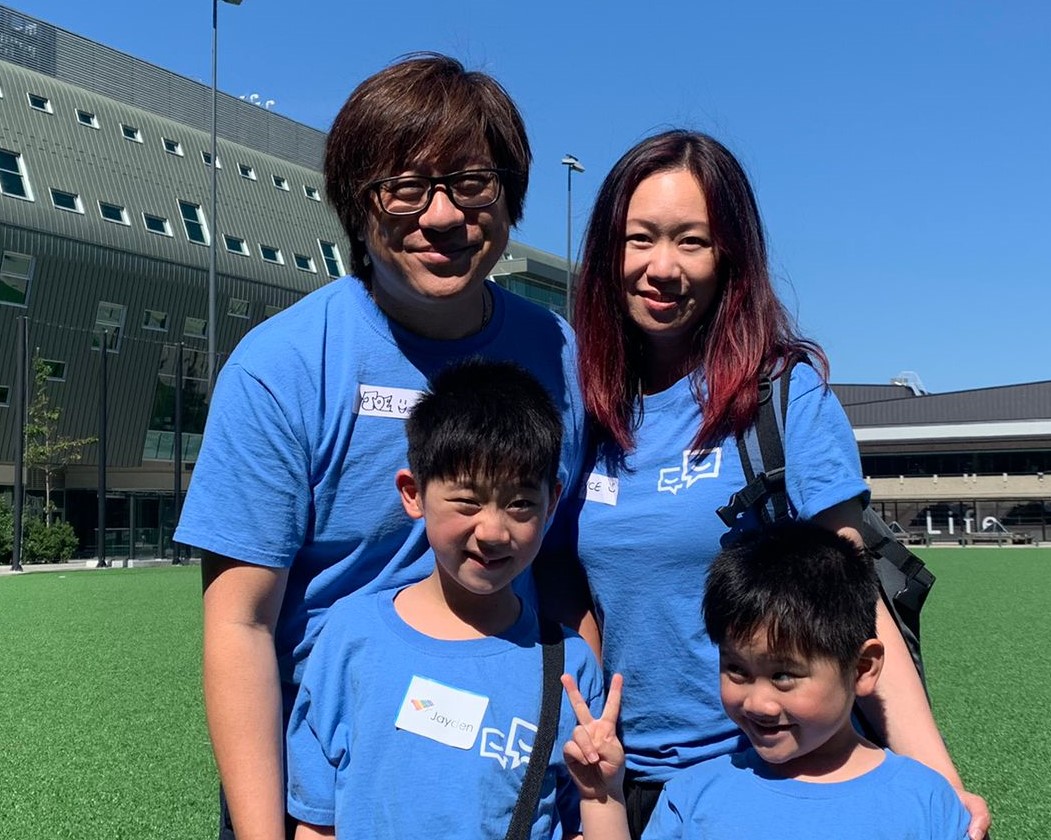
Jayden (bottom left) and his family outside Camp CONNECT.
Sinden says the role of SLP practitioners is to help ensure everyone is heard and seen.
“We teach students to acknowledge and reveal the competence of their clients. We may be surprised at assertions they may make,” she says. “Camp CONNECT changed the premise of working with our clients. The inherent power imbalance between clinician and client was shifted so that the clients were in charge.”
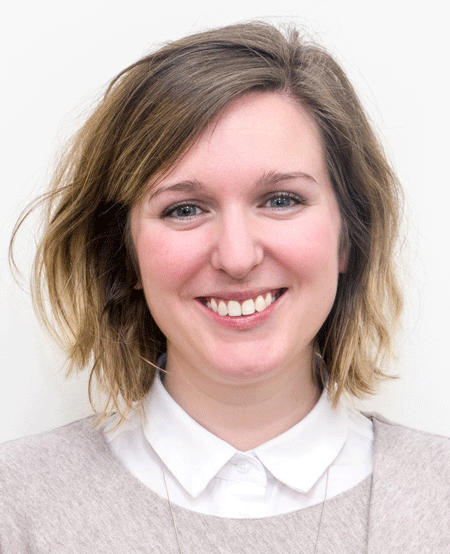
Camp CONNECT faculty lead Eavan Sinden
Joseph, Jayden’s dad, agrees.
“Just like other children, Jayden has thoughts, emotions, feelings,” he said. “These AAC devices and initiatives like Camp CONNECT help kids like Jayden express what they want and how they feel.”
Joyce adds that, since Jayden attended the camp, his education assistant at school has also noticed a big difference in Jayden’s communication, even calling him “a chatterbox.”
For students like Bannister, Camp CONNECT not only helped them gain new skills, but reaffirmed their passion for speech therapy.
“I learned so much from these kids. I think it really changed my life,” she says. “I think that a lot of people may have judgments towards those who are not like them. Giving people the chance to take their time, say what they want to say, move how they want to move — it’s so important. Our job, as speech therapists in training, is to help create that space.”
Camp CONNECT was made possible by the support and contributions of Reiko Anderson, Marcia Choi, Cheryl McGee, Dr. Jeff Small, March of Dimes Canada, the UBC Faculty of Medicine Development Office and the SLP Clinical Leads. Along with Joyce and Joe, the Camp CONNECT advisory committee included an adult with aphasia and his wife, a retired speech-language pathologist who was a leader in the field.
For updates about possible future camps, please visit the School of Audiology and Speech Sciences website or follow @UBC_sass.